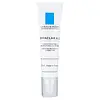What's inside
What's inside
 Key Ingredients
Key Ingredients

 Benefits
Benefits

 Concerns
Concerns

 Ingredients Side-by-side
Ingredients Side-by-side

Water
Skin ConditioningCyclohexasiloxane
EmollientIsononyl Isononanoate
EmollientPropylene Glycol
HumectantIsohexadecane
EmollientNiacinamide
SmoothingPEG-100 Stearate
Glyceryl Stearate
EmollientCetyl Alcohol
EmollientArgilla
AbrasiveCarbomer
Emulsion StabilisingSodium Hydroxide
BufferingCapryloyl Glycine
CleansingCapryloyl Salicylic Acid
ExfoliatingCitric Acid
BufferingXanthan Gum
EmulsifyingAcrylates Copolymer
Salicylic Acid
MaskingIodopropynyl Butylcarbamate
PreservativeChlorhexidine Digluconate
AntimicrobialPiroctone Olamine
PreservativeParfum
MaskingWater, Cyclohexasiloxane, Isononyl Isononanoate, Propylene Glycol, Isohexadecane, Niacinamide, PEG-100 Stearate, Glyceryl Stearate, Cetyl Alcohol, Argilla, Carbomer, Sodium Hydroxide, Capryloyl Glycine, Capryloyl Salicylic Acid, Citric Acid, Xanthan Gum, Acrylates Copolymer, Salicylic Acid, Iodopropynyl Butylcarbamate, Chlorhexidine Digluconate, Piroctone Olamine, Parfum
Water
Skin ConditioningSodium Gluconate
Skin ConditioningPropylene Glycol
HumectantOctyldodecanol
EmollientSteareth-2
EmulsifyingCyclopentasiloxane
EmollientSteareth-21
CleansingSalicylic Acid
MaskingCetyl Alcohol
EmollientBehenyl Alcohol
EmollientCyclohexasiloxane
EmollientPolyacrylamide
C13-14 Isoparaffin
EmollientXanthan Gum
EmulsifyingMagnesium Aluminum Silicate
AbsorbentLaureth-7
EmulsifyingMenthol
MaskingCI 77891
Cosmetic ColorantIngredients Explained
These ingredients are found in both products.
Ingredients higher up in an ingredient list are typically present in a larger amount.
Cetyl Alcohol is a fatty alcohol. Fatty Alcohols are most often used as an emollient or to thicken a product.
Its main roles are:
Though it has "alcohol" in the name, it is not related to denatured alcohol or ethyl alcohol.
The FDA allows products labeled "alcohol-free" to have fatty alcohols.
Learn more about Cetyl AlcoholCyclohexasiloxane is a type of silicone more commonly known as D6. It is an emollient and solvent.
Cyclohexasiloxane is used to evenly distribute ingredients throughout the product. When applied to the skin, Cyclohexasiloxane evaporates and leaves behind a silky feel.
As an emollient, it can help the skin feel soft and hydrated. It is also used to reduce frizz in hair products.
Learn more about CyclohexasiloxanePropylene Glycol is an odorless, colorless liquid. As a humectant, it helps skin retain moisture. It also aids in delivering active ingredients.
Another role of this ingredient is preventing a product from melting or freezing. Propylene glycol also adds antimicrobrial properties to a product, elongating product lifespan.
This ingredient is considered an organic alcohol and commonly added into both cosmetics and foods.
Those with sensitive skin or conditions may develop a rash when using this ingredient.
Learn more about Propylene GlycolSalicylic Acid (also known as beta hydroxy acid or BHA) is a well-known ingredient for treating skin that struggles with acne and clogged pores. It exfoliates both the skin's surface and deep within the pores to help clear out buildup, control oil, and reduce inflammation.
Unlike AHAs (alpha hydroxy acids), salicylic acid is oil-soluble. This allows it to penetrate into pores which makes it especially effective for treating blackheads and preventing future breakouts.
Salicylic acid is also known for its soothing properties. It has a similar structure to aspirin and can calm inflamed or irritated skin, making it a good option for acne-prone skin that is also sensitive.
Concentrations of 0.5-2% are recognized by the U.S. FDA as an over-the-counter topical acne product.
It can cause irritation and/or dryness if one's skin already has a compromised moisture barrier, so it's best to focus on repairing that before introducing this ingredient into your routine.
While salicylic acid does not increase sun sensitivity, it’s still important to wear sunscreen daily to protect your skin.
If you are looking for the ingredient called BHA or Butylated Hydroxyanisole, click here.
Learn more about Salicylic AcidWater. It's the most common cosmetic ingredient of all. You'll usually see it at the top of ingredient lists, meaning that it makes up the largest part of the product.
So why is it so popular? Water most often acts as a solvent - this means that it helps dissolve other ingredients into the formulation.
You'll also recognize water as that liquid we all need to stay alive. If you see this, drink a glass of water. Stay hydrated!
Learn more about WaterXanthan gum is used as a stabilizer and thickener within cosmetic products. It helps give products a sticky, thick feeling - preventing them from being too runny.
On the technical side of things, xanthan gum is a polysaccharide - a combination consisting of multiple sugar molecules bonded together.
Xanthan gum is a pretty common and great ingredient. It is a natural, non-toxic, non-irritating ingredient that is also commonly used in food products.
Learn more about Xanthan Gum